
Channel has plenty of room to grow in 2024
With 2023 receding in the rear view mirror, attention is now shifting toward what might be in store in 2024. We asked representatives from channel partners to give us their views of 2023 and provide some guidance on what to expect in the coming 12 months.
Neil Phelan, CEO, HCS
“The tide is rising for us as IT resellers,” Phelan says. “We’re becoming as necessary as water and power. If anyone in the IT sector is not doing well, there’s something seriously wrong.”
He reveals that HCS enjoyed double digit growth in 2023 with the main drivers being cybersecurity and digital transformation where businesses are adopting the low code, no code Microsoft Power platform, building small apps to solve small business problems. “We see a lot of movement and growth in that space,” he notes. HCS has been an advocate of the Power platform over the last couple of years and saw real adoption of it last year.
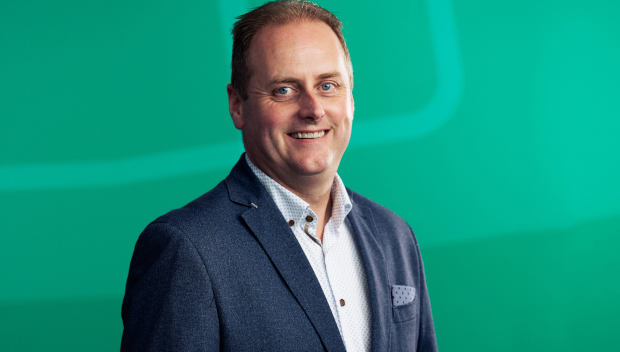
Phelan noticed “one very strange” phenomenon during the year where buying habits in the summer period dropped significantly in terms of projects. It’s not something HCS would have experienced in recent years. Decision-making was delayed and slow.
As for 2024, he says that “if it starts like 2023 has finished, we’re in for a very busy first six months”. Phelan can’t see any change in the catalysts for driving growth, particularly security and cybersecurity. Getting people to improve their security posture is a constant effort. “Some people are on catch up, some people have made some effort and will take further steps, while some people are a long way behind,” he remarks.
Security has become an integral part of the conversation between HCS and customers.“It would be remiss not to have the conversation because customers could be wiped out.” Support is still the bread and butter, the thing that happens in the background. How does HCS protect the customer to make sure it can function on a day to day basis?
The digital transformation age is about to enter the AI transformation age, Phelan argues. “In 2024 we will see AI embedded in what you’re doing on a day to day basis. Vendors are going to adopt AI within their tech. We will see it embedded in every single product. Co-pilot will transform how AI is used and how people work.”
Overall, HCS is expecting similar growth in 2024.
Adrian Kelly, sales & marketing director, DNA IT
Kelly describes 2023 as “a good year overall”. DNA IT has had a few good years where growth has been very consistent. The company was lucky or fortunate, because it “identified that security was going to become a very hot button issue. We were early. It takes a long time to evolve that and move from general to sophisticated services”.
Now that security is “screamingly hot”, the company is “ready and able to hit the ground running. It’s gone from being a small piece to the biggest piece of our business. It’s the fastest growing. Every single business starts with security engagement”.
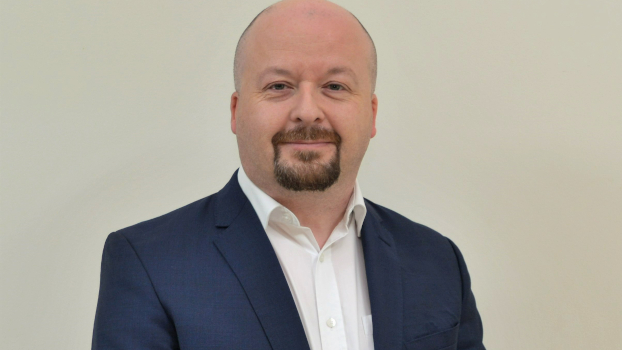
He is optimistic about 2024. “There will be no let off in security,” he says, citing compliance as an area that requires a lot of work for customers.
The Digital Operational Resilience Act (DORA) regulation in EU will be “a major change for a lot of people. We have to be ready to be ahead of that ourselves and to be able to help people with that. There’s a long way to go for it to settle down and become mature again”.
He says that some of the company’s new clients left their existing relationships because their channel partners couldn’t evolve fast enough to cover security and risk. “Any MSP not seeing security as the number one risk factor is going to be in big trouble soon,” he warns. “It’s going to be left behind.”
Security has gone from being a very small part of the budget to becoming enormous. Often, it’s one of the largest pieces. “From here on in, it’s going to be one of the biggest investments,” he predicts. Customers used to thinking about their apps and how to use their IT more efficiently, are all of a sudden having to treble their security spend because they are miles away from where they planned to be.
“I don’t see anything changing. A lot has been done and there’s a huge amount still to be done. A lot of people still have to get to a good essential level,” Kelly adds.
He admits to “being a little bit exposed to some of the international economy” as the company’s biggest six or seven clients are all global businesses.
There’s a challenge to support companies as they grow globally. DNA IT is now supporting 55 global sites in 23 countries.
“That’s a big step change for us,” Kelly says. “What’s happening in global markets has an impact on our clients and on us.”
Kevin O’Loughlin, CEO, Nostra
O’Loughlin describes 2023 as “our best year to date in every aspect of the business” and the company’s “biggest ever year of growth”. Nostra completed four acquisitions in the year and is aiming for at least four more in 2024 with two possibly going to be completed before the end of this month.
There has been a shift in the industry with businesses becoming less and less interested in multiple suppliers and vendors for different products and services. “Our strategy would be to continue to buy companies to acquire market share, get great talent and add additional services,” he says. Nostra is also widening its geographical spread and product set.
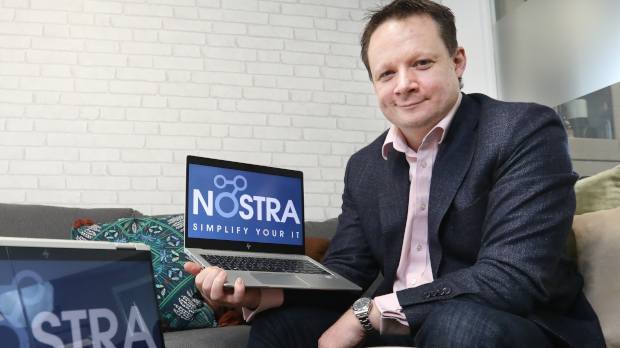
The company began 2023 with 350 customers and ended it with 650. “We’re adding customers organically at the fastest rate since we started. It’s been a really, really strong year. We’re very bullish for 2024,” O’Loughlin says.
Acquisitions help to extend the company’s geographical reach to meet its aim of developing five or six key locations in Ireland so it can service customers everywhere within 45 minutes to an hour.
They help add to the profile of its clients and bring in additional skill sets. For example, Nostra’s IT security business has doubled since it acquired Brandon Global IT in 2020. Acquiring Definitive Solutions this year added to its skills in Azure, Microsoft cloud and security.
“We will continue to move at serious pace and make sure we bring on and buy great businesses,” O’Loughlin says.
MSPs in the €1-5 million bracket in Ireland find it difficult to build systems to make customers as secure as they need to be. “It’s a difficult space and it’s getting much more difficult. I don’t see a huge amount of small companies staying in the market. Either you go on an acquisition spree, bring in security and organically grow the business or you exit. There isn’t an option of being able to continue on as you can.”
On the subject of security, he says it’s an issue that MSPs and tech people care a lot about, because if customers are vulnerable, it’s difficult to sleep at night. And it takes huge energy and investment to protect against that.
A company that was spending €50,000 on IT five years ago could now be spending the same amount on IT but with up to €15,000 on security as well. “No business owner doesn’t know someone who has been breached,” O’Loughlin says and makes the astute observation that “people say lightning doesn’t strike twice, but it’s the opposite in cyber. You have to make sure you’re battening down the hatches”.
Nostra plans to expand into the UK market in 2024. “The only way into a new market is by acquisition, and that will be our route,” O’Loughlin adds.
Brid Graham, Presidio, SVP Europe & APAC
Presidio has a large multinational client base and witnessed “abnormal purchasing” during COVID which was difficult to keep pace with as clients were hiring and deploying rapidly. “We saw a correction of that in 2023 for sure,” Graham says. Clients were taking a step back, assessing and looking at more sustainable tech strategies. They started to rethink their refresh policies, in terms of how and when they changed their tech, to look at reducing the amount of tech they were consuming, to reuse where they could and also to recycle.
“It gave us a chance to align with that,” Graham says. “It’s a big focus for us and we believe it will continue into 2024, we will continue to see clients be more thoughtful.” Partners need to be doing more than just selling a laptop and managing it, they have to be more holistic in how they approach those clients.
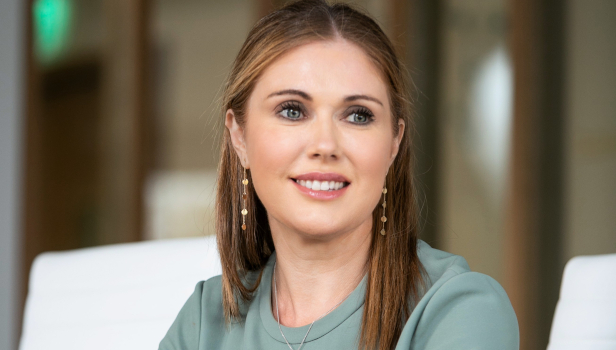
She describes 2023 as “a year of inflection and reflection” where clients moved to more normalised patterns of procurement, in line with pre-pandemic levels.
Graham says AI can’t be ignored in 2024. It was a big talking point in 2023. The focus now will be on how it plays out within organisations as they start to embed it into what they’re doing. It is likely to have an impact on cybersecurity because it brings a level of complexity and speeds up attacks – but it will also be used to protect clients and ensure they are resilient if there are attacks.
Cost optimisation is a big thing for Presidio’s clients as they look at their data, how it’s managed and where it resides. Many have gone to the cloud piecemeal, so how do they ensure they are getting value for money?
She agrees with all the other respondents that cybersecurity “is so important, it has to be front and centre for our clients”. A cybersecurity assessment is vital, Graham adds. Presidio is asking all its clients to continue to do cybersecurity assessments, to look at the gaps and how to plug them so they are protected.
She echoes O’Loughlin’s observation that customers are seeking to streamline the number of partners they work with: “They are looking for partners that can cover more of their IT demands and I’m very proud to say that’s where Presidio can play.”
Presidio is “optimistic for 2024. We’re in a really good industry, we have a tremendous client base and we bring a unique proposition with our geographical reach”.
Sean Nolan, business development manager, Agile Networks
The general consensus within Agile, which is part of the umbrella group of PlanNet21 companies, is that 2023 was a very positive year although things could get tough in 2024, Nolan says.
He argues the rounds of redundancies from west coast companies in the US will have an effect on staffing in Ireland. The public sector is bucking the trend, however, and is very buoyant.
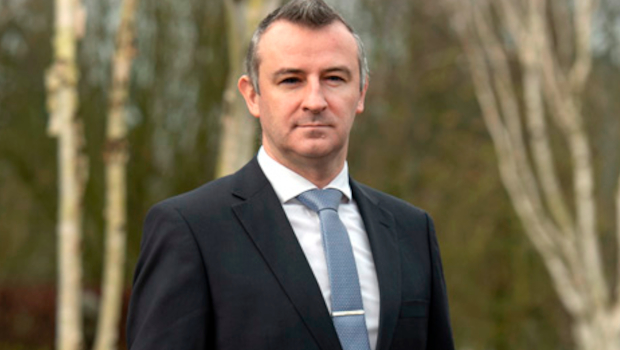
Nevertheless, “if you look at it from the tech sector point of view,” he admits, “it’s not as positive.”
Still, 2023 was “as good a year as we’ve ever had in 12 years existence. We were taking business from other competitors.”
The third level education sector showed good growth in Wi-Fi with universities reporting exponential growth in the number of students on campus. There was a “refocusing of attention” to the on-campus experience which meant more wifi, more outdoor Wi-Fi, greater coverage, an increase in the areas being covered and in the wifi services being provided.
He thinks the upward trajectory in growth was driven by youngsters who had been forced to stay at home in lockdown being anxious to be able to mix and socialise with their peers post-Covid.
Nolan believes Wi-Fi is at an inflection point with the MIST product from Juniper Networks which has “been feeding and watering an AI engine for the last seven years. Most other mainstream manufacturers are only starting on that journey. In terms of inputs and outcomes, they’re a number of years behind. It’s unique in the marketplace and we’re doing very very well with it”.
He estimates that it can remove nearly 40% of all IT helpdesk tickets.
“The way I sell Wi-Fi is changing. I’m talking about how can I reduce service tickets and provide an automated response that will allow network engineers to focus on more strategic areas. This is AI with very strict boundaries in a very strict context.”
On the whole, he has a “relatively positive outlook for 2024, even though the channel is going to be tough with a tightening of belts. It’s going to be interesting to see how it pans out”.
Pádraigh Griffin, chief commercial officer, Evad Technology Group
Like everyone else, Griffin identifies cybersecurity as a big growth area in 2023 and one that’s likely to continue in 2024.
He views it primarily in the context of Microsoft and its XDR solution. “Microsoft emerged as the biggest security company in the world,” he says, adding that companies which specialise in anti-virus or endpoint protection will be under serious pressure because their client base will be “getting the best product on the market for free or included in their subscription”.
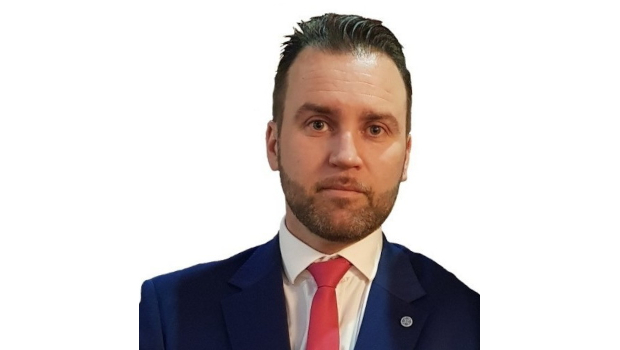
With XDR, customers can build out their entire security centre via Microsoft rather than using multiple products. “Microsoft is going to be absolutely huge in 2024,” Griffin argues. The software giant is seeking to drive partners to assess the security posture of their clients and get them up to a minimum Mission 65 score to provide the level of cyber resilience they need, but the vast majority of organisations have a security score of 30% or lower.
“It’s an opportunity for every Microsoft partner to be able to work with Microsoft to strengthen the cyber resilience of their clients,” he states but warns that with most MSPs being a Microsoft partner in some shape or form, “if you don’t get your clients to 65 or higher, another partner will come in and get them to that”.
Another big opportunity is presented by the prolonged end of support for Windows Server 2012 R2. The recent announcement by Microsoft that it would provide an extra two years patching and security support for customers to keep Windows Server 2012 R2 on premise and spin up a server in Azure will provide opportunities for partners to help customers find the right place for the right workload and where to run it most efficiently before they upgrade to Windows Server 2016 or 2019.
On the subject of cloud, Griffin says “cloud repatriation is happening quite a lot with people moving potentially to on-premise or hybrid”.
He cites a report by IDC which found that 50% of CEOs were either very or extremely concerned about their growing cloud costs, 79% felt a portion of their cloud spend was wasted and 60% were spending two to three times more on cloud than they had originally budgeted for. “We have clients moving out of cloud,” he says. The three pillars driving their decisions are operational efficiency, operational security and operational cost. “The era of the ‘cloud first’ strategy has gone. Everyone is adopting a ‘workload first’ strategy,” Griffin states.




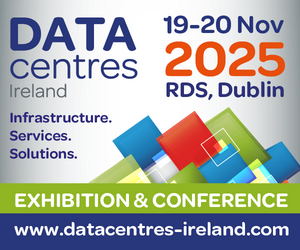

Subscribers 0
Fans 0
Followers 0
Followers